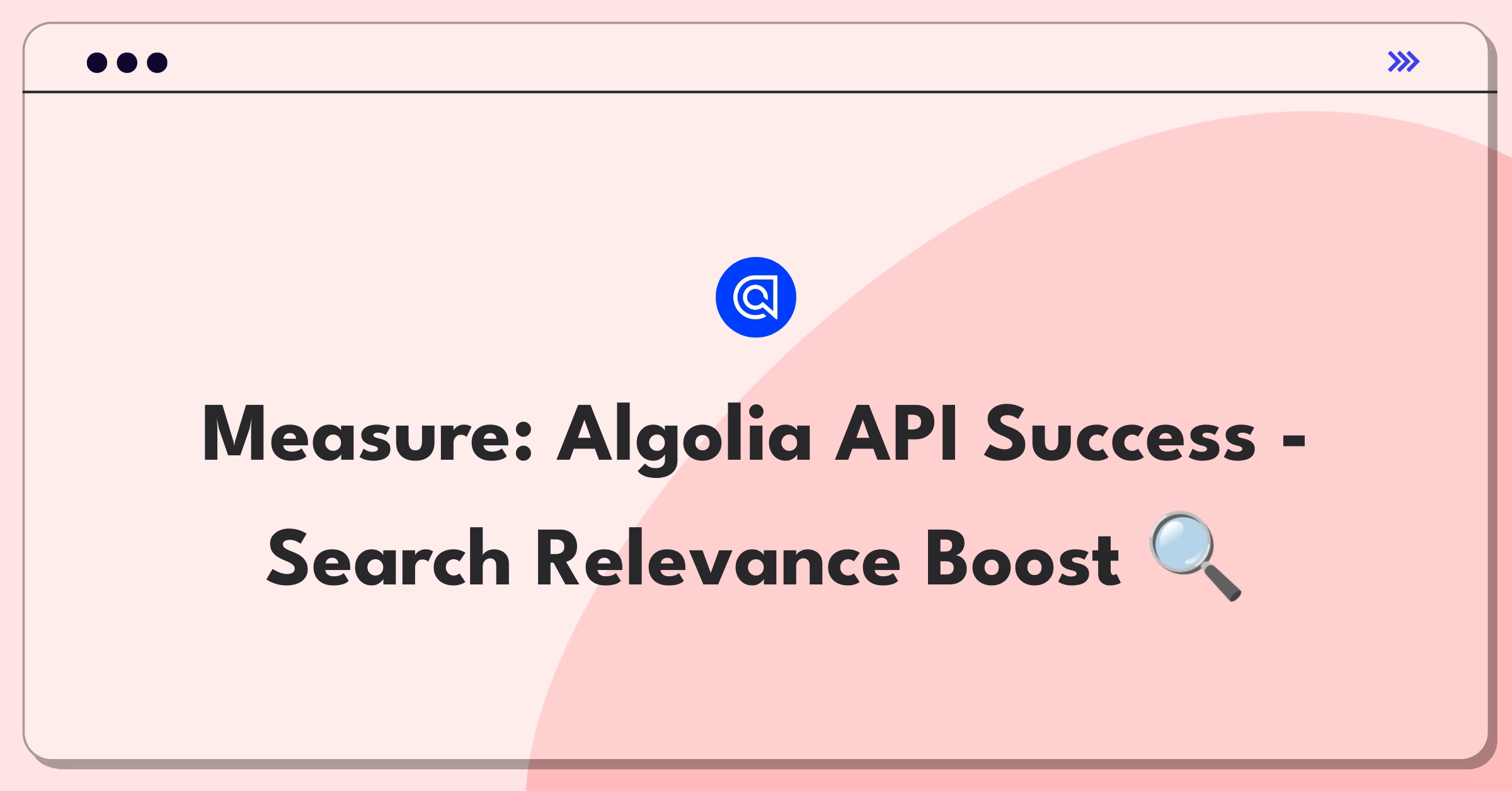Introduction
Measuring the success of Algolia's search API integration is crucial for optimizing search functionality and enhancing user experience. To approach this product success metrics problem effectively, I'll follow a structured framework that covers core metrics, supporting indicators, and risk factors while considering all key stakeholders.
Framework Overview
I'll follow a simple success metrics framework covering product context, success metrics hierarchy, and strategic initiatives.
Step 1
Product Context
Algolia's search API is a powerful tool that enables developers to integrate fast, relevant search capabilities into their applications. It's designed to handle complex queries and provide instant results, making it ideal for e-commerce platforms, content-heavy websites, and mobile apps.
Key stakeholders include:
- Developers: Seeking easy integration and robust functionality
- End-users: Expecting quick, accurate search results
- Business owners: Looking for increased engagement and conversions
- Algolia: Aiming for widespread adoption and customer satisfaction
The user flow typically involves:
- Developer integration: Implementing Algolia's API into the application
- Index creation: Uploading and organizing searchable content
- Query handling: Processing user search inputs
- Results display: Presenting relevant results to end-users
Algolia's search API fits into the company's broader strategy of democratizing search technology and improving user experiences across the web. Compared to competitors like Elasticsearch or Lucene, Algolia offers a more user-friendly, out-of-the-box solution with advanced features like typo tolerance and customizable ranking.
In terms of product lifecycle, Algolia's search API is in the growth stage, with a solid user base but still expanding its market share and feature set.
Subscribe to access the full answer
Monthly Plan
The perfect plan for PMs who are in the final leg of their interview preparation
$99 /month
- Access to 8,000+ PM Questions
- 10 AI resume reviews credits
- Access to company guides
- Basic email support
- Access to community Q&A
Yearly Plan
The ultimate plan for aspiring PMs, SPMs and those preparing for big-tech
$99 $33 /month
- Everything in monthly plan
- Priority queue for AI resume review
- Monthly/Weekly newsletters
- Access to premium features
- Priority response to requested question


.png)